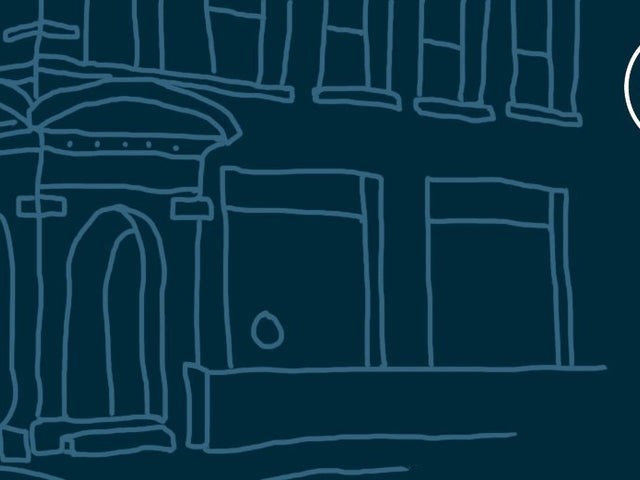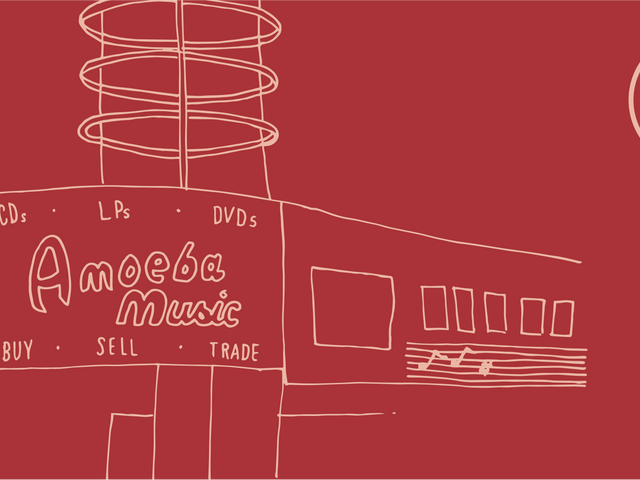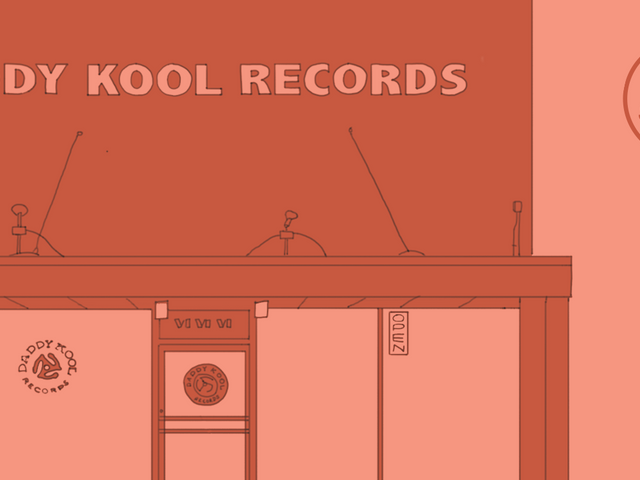The Little Big Store adalah toko rekaman terbaik di Mississippi
„50 Toko Rekaman Terbaik di Amerika“ adalah serangkaian esai di mana kami berusaha menemukan toko rekaman terbaik di setiap negara bagian. Toko-toko ini tidak selalu merupakan toko rekaman dengan harga terbaik atau pilihan yang paling mendalam; Anda bisa menggunakan Yelp untuk itu. Setiap toko rekaman yang ditampilkan memiliki cerita yang melampaui apa yang ada di raknya; toko-toko ini memiliki sejarah, membina rasa komunitas, dan memiliki arti bagi orang-orang yang sering mengunjungi mereka.
Jackson, Mississippi, hasn’t always had much in the way of “cool” counterculture. To be a Mississippian is to be a de facto kind of countercultural, but it’s not something you’d boast about. Statistically this means your family earns about $15,000 below the national median, and nearly three times as likely to have been born to teen parents. U.S. News and World Report ranks your state dead last in terms of infrastructure and 49th in terms of economic opportunity. You’re basically the same kind of outlier to the rest of the U.S. that developing nations are to the developed world. This means pop culture is foreign enough to be a kind of local subculture, and actual art and music subcultures are scarce—doubly so, pre-AOL dial-up.
But in 1981, Jackson (and the rest of the nation) got MTV, and MTV inspired Betty Strachan to transform her unprofitable art gallery into the Little Big Store.
The Little Big Store used to be little (a shed on a road with a plethora of abandoned buses) and ended up big, now occupying five rooms of a rambling train depot filled with (most likely) millions of records. But that’s not why Strachan, 71, called it the Little Big Store. She never thought selling records would last more than a year, so she named her shop randomly, after Little Big Men, a Western starring Dustin Hoffman.
In 1976, Strachan came to Jackson (then at its peak population of about 200,000) from California, under circumstances she says, “It would take a glass of wine and a couple of hours” to reveal. By the time Strachan put an “I Buy Albums” sign in front of her art shop, Jackson had Be-Bop Records—a statewide music chain, that, according to a former employee, once ranked fifth-highest in the nation in terms of sales. But Be-Bop supplied mainstream music. Maybe three copies of something by the Misfits would come to the warehouse, and the guy working would call a friend and tell him the records were on their way to the store, to get there fast, before the other four people in town who actually cared about the Misfits could.

In 1982, the Little Big Store moved to South Jackson, a working-class neighborhood that included the state’s first enclosed mall, a guitar store, a large branch of Be-Bop, a bike shop and a skate park. Within a few years, the deserted street where the Little Big Store first stood—once the edge of civilization—bustled with chain restaurants and a shiny new mall with two music stores.
Everyone wanted CDs, so they brought Strachan their entire record collections. She moved again, this time into a strip mall across from her current strip mall, and stayed for almost a decade—long enough for South Jackson to become one of the city’s most dangerous areas. In 1994, following a break-in, the Little Big Store relocated to its permanent home—a train depot built in 1889 about 25 miles outside of Jackson, Raymond, Mississippi, population 2,000. The town has a jail and a community college, which keeps folks in jobs, and a Civil War battlefield, which attracts an occasional tourist. There’s a biker bar, a historic church, an old courthouse and not much else.
But it hardly mattered that the Little Big Store had moved half an hour off any beaten path, because the ’90s were fated to be lean. Strachan began stocking used CDs as well as records, but when CDs gave way to streaming, music stores—including Mississippi’s own Be-Bop—went under. As Strachan puts it, she “held on with bloody fingers.” She’d bought the depot outright, so she wasn’t paying mortgage. That helped, but business was bad until 2009.
“It was a slow rise, but now vinyl is like the hot new thing again,” she says.
With the rebirth of record shops—something Strachan attributes to “the artwork, the sound, and I guess they’re kind of mysterious”—came a demographic shift. Strachan used to primarily sell to guys. Her customers were often musicians or aspiring musicians, kids who got beat up for dressing “punk” in high schools where you had to be preppy or metal. Now she sells to just as many women. Some of her customers are from the local college, which largely serves student who come from places even more rural than Raymond.
The Little Big Store has the vibe of an extremely well-organized hoarder’s house that was inherited from a pioneering great-grandpa. The walls and floors are aged wood. Some of the rooms were once huge open spaces, though now shelves block out peripheral windows. There are nooks, such as the room behind the iron bars, where long-ago ticket agents made sales.
There’s a room of jazz, Motown and R&B, and another of country, classical and opera. There are soundtrack and children’s sections. Mississippi-made 45s are on top of the vintage coke machine, old concert and movie posters are tacked to walls and band T-shirts dangle from the ceiling alongside holiday lights. There’s a wall of cassettes, a corner of dusty comics and music rags (including a 1983 Rolling Stone, the one with Carrie Fisher in Leia’s gold-snake bikini on the cover), old music biographies and copies of Heavy Metal (sci-fi cartoon soft-porn, circa 1977-’92). Test pressings and Voice-o-graphs (mostly someone’s dad singing a hymn, according to Strachan) are mounted on a door. Everything is for sale.
DJ Shadow has come in twice. The first time, he stayed all day and dropped $1,000. The second time, he was with Cut Chemist (the DJ behind Jurassic 5) and the Jackson-born rapper, David Banner. Another time, Banner came in alone. His grandmother had just died, and he spent hours talking to Strachan. “He was the nicest guy in the world. Then I looked up some of his videos… you would never know he’s such a sweetheart,” Strachan says.
One morning Leslie Hawkins, a backup singer for Lynyrd Skynyrd (she broke her neck in the ’77 plane crash), sat behind the counter and told Strachan how her father used to stay out all night playing with Hank Williams Sr. and how angry this made her mother. And once, W.S. “Fluka” Holland, Johnny Cash’s longtime drummer, came in.
You won’t find any new records here (there’s a well-curated shop, the End of All Music, in Oxford for that), and there’s no inventory list. Strachan knows a few of her more valuable albums: a signed, early Johnny Cash, a 78 of Big Mama Thornton singing “Hound Dog” and the 1966 Beatles’ Yesterday and Today, banned for album art featuring dismembered babies. But if you just discovered Martha and the Muffins, your best bet is to go on over and thumb through the M’s.
You won’t get overt deals, either. Strachan prices using the Goldmine guide, and she labels most of her merchandise “mint,” even when it isn’t. But if you know your stuff, you might luck into a score. A local collector, Pat Cochran, made about $3,000 selling singles to reprinters—Mississippi-made ’70s funk records, too rare even for Goldmine. And a customer once pulled several copies of an Elvis album sold only at live shows and told Strachan to keep them behind the counter. (It’s called Having Fun With Elvis Onstage, all banter, worth several hundred dollars and critically labeled one of the worst rock albums ever.) While I’m in the store, a college student buys a Led Zeppelin LP, and later, two other college students debate between Hendrix or Pink Floyd.
Strachan used to love Pink Floyd, but now she likes to find new music. Mostly she listens to satellite radio and YouTube. In a way, the Little Big Store is a physical embodiment of YouTube. You can find what you want, and often you make new discoveries while browsing something your came to via a targeted search. And in the days before YouTube, this browsing was one of the few opportunities Jacksonians had to discover new music—and through new music, perhaps a firmer sense of their own identity.
Up next, we go to the best record store in Iowa.
Cheree was once introduced as “a hippie journalist who believes a dance party can solve any problem.” She's covered art and politics for VICE, BOMB Magazine and Juxtapoz.
Related Articles
Bergabung dengan Klub!
Bergabunglah sekarang, mulai dari 44 $Exclusive 15% Off for Teachers, Students, Military members, Healthcare professionals & First Responders - Get Verified!











